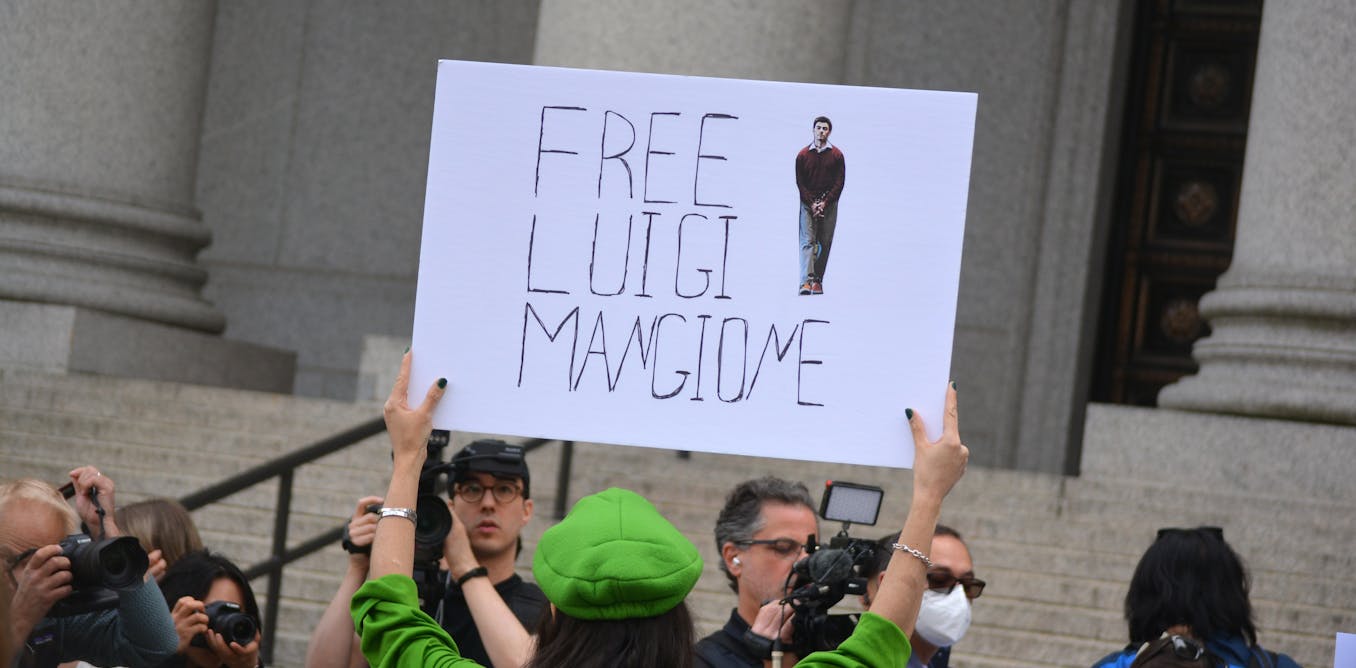Science
Workplace Burnout Linked to Extremist Ideologies, New Study Finds

The recent arrest of Luigi Mangione for allegedly murdering the CEO of UnitedHealthcare has raised significant concerns about the factors contributing to extremist thinking. Following the incident in December 2024, a startling 41% of young adults surveyed expressed acceptance of the violent act, suggesting a troubling shift in societal attitudes toward violence. A new study published in the special issue on “Understanding Violent Extremism” of the APA Journal Psychology of Violence reveals that workplace burnout may play a critical role in fostering such extremist ideologies.
Mangione’s manifesto, which referenced “corruption and greed,” resonates with a growing discontent among workers facing increasing pressures in their jobs. The study indicates that systemic frustration and perceived corruption can be linked to heightened burnout levels among employees.
Understanding the Burnout to Extremism Connection
The research involved daily surveys from over 600 employees, tracking their burnout symptoms and emotional states alongside their attitudes toward violent extremism. The findings revealed a significant correlation: on days when employees reported higher burnout levels, they exhibited increased sympathy for extremist ideas, including justifying violence against perceived injustices.
The emotional toll of burnout often manifests as negative feelings such as fear, sadness, and guilt. To alleviate these emotions, some individuals may be drawn to extremist ideologies as a means of restoring a sense of purpose. The study integrates three psychological theories to explain this phenomenon.
First, General Strain Theory posits that daily frustrations lead to violent extremism through emotional distress. Second, the existential model of burnout links the experience of burnout to a loss of meaning in one’s work. Lastly, Significance Quest Theory suggests that when individuals feel a lack of personal significance, they may turn to radical beliefs to regain a sense of meaning. Together, these theories indicate that burnout represents a failed search for meaning, which can push individuals toward extremist ideologies.
Implications of Burnout in the Workplace
While the study does not imply that all individuals experiencing burnout will resort to violence, it highlights how pervasive burnout can normalize extremist attitudes. The distinction between radicalization of opinion and action is crucial; the former can threaten social cohesion and democratic values without necessarily leading to violent outcomes.
Currently, burnout affects approximately 75% of employees globally, indicating a significant portion of the workforce is vulnerable to adopting extremist ideas. Although the majority will not engage in violence, a society that becomes increasingly accepting of extremist attitudes risks normalizing harmful behaviors.
The study also emphasizes the protective role of perceived organizational support. Employees who feel valued and supported by their organizations are less likely to embrace extremist ideologies, even when experiencing burnout. However, this support is most effective when provided before negative emotions escalate. Once employees reach a certain emotional threshold, additional support may yield limited results in preventing extremist attitudes.
To combat this issue, employers must proactively invest in burnout prevention. This involves fostering a fair and transparent workplace environment, recognizing employee contributions, training management to identify early signs of burnout, and creating open channels for feedback.
Broader societal perceptions of injustice can also exacerbate extremist sympathies, especially in cases like Mangione’s, where political motives may intensify feelings of unfairness. As evidenced by ongoing discussions surrounding potential political motivations behind punitive measures against him, systemic issues may further fuel radical views.
Burnout represents more than just workplace fatigue; it signals a deeper existential vulnerability. Organizations that ignore employee burnout risk not only diminished productivity but also create an environment conducive to ideological radicalization. As extremist sentiments continue to rise, recognizing and addressing the psychological triggers associated with burnout becomes imperative.
Employees need support not just to improve job performance but to maintain a sense of meaning and stability in their lives. When the workplace fails to provide this, extremist ideologies may fill the void, leading to consequences that extend well beyond the office environment.
-

 Entertainment4 weeks ago
Entertainment4 weeks agoAimee Osbourne Joins Family for Emotional Tribute to Ozzy
-

 Politics4 weeks ago
Politics4 weeks agoDanny Healy-Rae Considers Complaint After Altercation with Garda
-

 World1 month ago
World1 month agoHawaii Commemorates 80 Years Since Hiroshima Bombing with Ceremony
-

 Top Stories1 month ago
Top Stories1 month agoFianna Fáil TDs Urgently Consider Maire Geoghegan-Quinn for Presidency
-

 Top Stories1 week ago
Top Stories1 week agoIreland Enjoys Summer Heat as Hurricane Erin Approaches Atlantic
-

 World1 month ago
World1 month agoGaza Aid Distribution Tragedy: 20 Killed Amid Ongoing Violence
-

 World1 month ago
World1 month agoCouple Convicted of Murdering Two-Year-Old Grandson in Wales
-

 World1 month ago
World1 month agoAristocrat Constance Marten and Partner Convicted of Infant Murder
-

 Top Stories1 month ago
Top Stories1 month agoClashes Erupt Between Far-Right Groups and Migrants in Spain
-

 Top Stories1 month ago
Top Stories1 month agoHistoric Dalkey Pub The Queens Reopens Under New Management
-

 World1 month ago
World1 month agoTrump Defends FBI Deputy Director Amid Epstein Files Controversy
-

 Politics1 month ago
Politics1 month agoTragic Crowd Surge at Gaza Aid Center Claims 20 Lives







